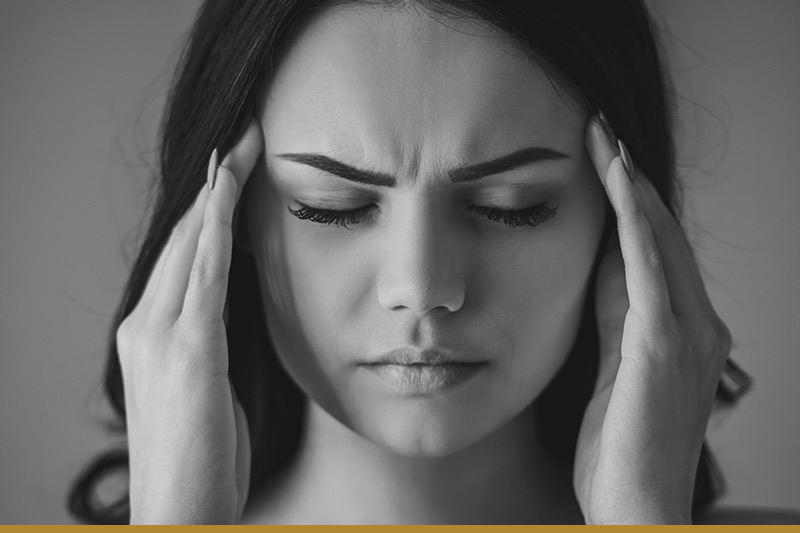Estrogen is a hormone that regulates female sexual development and reproductive function. Men produce it in smaller amounts to support erectile function and sperm production. Estrogen also helps maintain a healthy heart, bones, muscles, and a stable mood.
People with low estrogen levels suffer from unpleasant symptoms. This article explores the causes and effects and explains how to increase estrogen.

Hormones fluctuate all the time, depending on their function, the time of day or month, and specific external factors. It is normal to experience low estrogen after ovulation and at the end of menstruation.
However, if a certain condition prevents the ovaries (or testes) from releasing enough hormones, a patient can experience consistently low estrogen levels. This can lead to unpleasant symptoms and disrupt everyday life.
Low estrogen produces various symptoms. Keep in mind, however, that all the symptoms listed below can also result from other conditions. It is important to consult a medical provider to determine the accurate cause.
Potential symptoms of estrogen deficiency include:
Estrogen decline usually happens because of aging and menopause. Other causes include medical conditions, such as:
Note: Learn about the dangers of fad diets and find out why they never yield long-term results.
Risk factors that increase the chance of premature estrogen decline include:
Doctors diagnose estrogen deficiency during a medical examination that includes:
We can’t prevent the natural decline of estrogen caused by aging. However, certain lifestyle modifications can lower the risk factors that cause early signs of low estrogen.
Frequent high-intensity workouts can deplete the body of essential nutrients and cause physical stress, disrupting regular ovulation in women and reducing estrogen production. Aim at getting 150 minutes of moderate weekly exercise to help your body regulate appetite and body fat and maintain a hormonal balance.
Nutrient deficiencies are associated with hormonal disruptions. Avoid unhealthy foods and fad diets to ensure your body receives the optimal amount of necessary nutrients, especially vitamins B and D, which are involved in estrogen metabolism. Use vitamin supplements to ensure adequate daily nutrient intake.
Note: When it comes to vitamin B supplements, Vibrant Vitality Clinic recommends vitamin B IV therapy and vitamin B12 injections.
Phytoestrogens are chemicals in food that mimic estrogen activity. Research shows that consuming 50 mg of phytoestrogens daily may help maintain healthy estrogen levels. Foods high in these chemicals include:
Note: Learn more about the link between gut health and hormones.
Sleep disorders and hormonal imbalances perpetuate one another. Aim at getting seven to nine hours of sleep every night to support healthy hormonal activity.
Doctors prescribe hormone replacement therapy (HRT) to women with diagnosed low estrogen. HRT can consist only of estrogen or a combination of estrogen and progesterone. The treatment is FDA-approved for the following low estrogen-related conditions:
Doctors also prescribe HRT in an off-label procedure to treat polycystic ovarian syndrome (PCOS).
HRT balances sex hormones and serotonin, providing relief from physical and emotional difficulties, including:
Note: Vibrant Vitality Clinic provides female hormone replacement therapy in the Phoenix area. Contact us to learn more about the treatment or to book a consultation.
Patients suffering from low estrogen also benefit from natural supplements. These products are formulated with soothing botanicals, vitamins, antioxidants, and other nutrients that promote relaxation, relieve stress, promote gut health, and improve overall wellbeing.
Be mindful that supplements don’t treat the root cause of a hormonal imbalance, even though they can alleviate its unpleasant symptoms.
Note: Find out which supplements can balance hormones and how to perform a hormone detox to alleviate symptoms of a hormonal imbalance.
Low estrogen leads to low bone density, weight gain, and high cholesterol, increasing the risk of osteoporosis, obesity, and heart disease. If left untreated, it can also cause infertility in both men and women.
Declining estrogen is a natural occurrence that comes with aging. This process disrupts many bodily functions and creates unpleasant symptoms.
Fortunately, modern medicine brings effective solutions for low estrogen. Patients are also encouraged to make lifestyle modifications to help balance hormones and reduce the risk of premature estrogen decline.
If you need help addressing the symptoms of low estrogen, Vibrant Vitality Clinic is the right place to be.




4325 E Indian School Rd, Suite 130
Phoenix, AZ 85018
United States
(480) 422-2058
info@vibrantvitalityclinic.com
Monday - Friday: 9:00 am - 6:00 pm
Saturday: 9:00 am - 3:00 pm
Sunday: Closed
